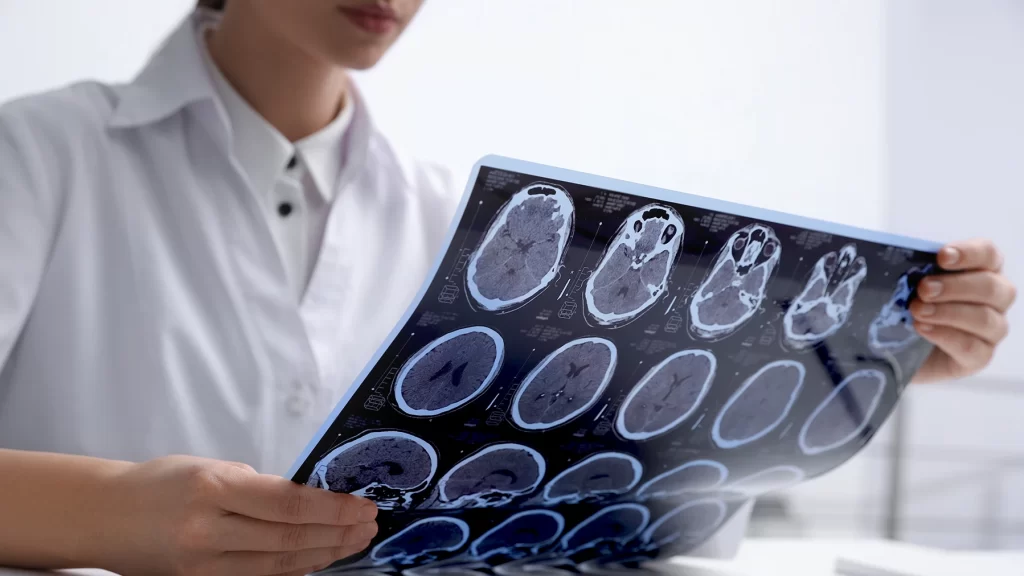Multiple Sclerosis (MS) is a chronic autoimmune disease that affects the central nervous system, leading to a range of symptoms including muscle spasms, pain, fatigue, and mobility issues. The quest for effective treatments has led researchers and patients alike to explore various alternatives, including medical cannabis. This blog delves into the evidence supporting the use of cannabis in treating MS, highlighting its potential benefits and distinguishing between licensed and unlicensed medications.

The use of cannabis in treating MS
The interest in cannabis for medicinal purposes has grown substantially, with a particular focus on its potential to alleviate symptoms of MS. Cannabis contains active compounds known as cannabinoids, including tetrahydrocannabinol (THC) and cannabidiol (CBD), which interact with the body’s endocannabinoid system to modulate pain, spasticity, and other neurological functions.
Pain and spasticity management
One of the most compelling areas of research is the use of cannabis to manage pain and spasticity, two of the most debilitating symptoms of MS. A systematic review of multiple studies has shown that cannabinoids can reduce pain in patients with MS. For example, a study published in the Journal of Neurology, Neurosurgery & Psychiatry found that nabiximols, a cannabis-based oral spray containing THC and CBD, significantly reduced spasticity scores in MS patients compared to a placebo.
Improvement in sleep and quality of life
Cannabis has also been reported to improve sleep and overall quality of life in MS patients. Another review noted improvements in sleep quality, which is often disrupted by pain and muscle spasms in MS sufferers. Improved sleep can lead to better daytime function and a general sense of well-being.
Neuroprotective effects
Beyond symptom management, some preclinical studies suggest that cannabinoids might have neuroprotective properties, potentially slowing the progression of MS. Research in animals has indicated that cannabinoids can reduce inflammation and protect neural tissues from damage. However, more clinical trials in humans are needed to confirm these findings.
Licensed vs. unlicensed medications
When considering medical cannabis for MS, it’s crucial to understand the distinction between licensed and unlicensed medications.
Licensed medications
Licensed medications have undergone rigorous clinical testing to ensure their efficacy and safety. They are approved by regulatory bodies such as the U.S. Food and Drug Administration (FDA), European Medicines Agency (EMA) or Medicines and Healthcare products Regulatory Agency (MHRA).
In the context of MS, nabiximols (Sativex) is a notable example of a licensed medication. Sativex is approved in several countries for treating spasticity in MS patients who have not responded adequately to other therapies. Its licensing is based on extensive clinical trials that demonstrated its ability to reduce spasticity and improve patient outcomes .
Unlicensed medications
Unlicensed medications, on the other hand, have not received formal approval from regulatory authorities. However, this does not mean that they cannot be prescribed by a clinician. Being unlicensed simply means that the product has yet to undergo large-scale clinical trials, meaning there is a less robust evidence base supporting its safety and efficacy.
In the UK, a significant portion of the medical cannabis patient population are prescribed unlicensed medical cannabis products through medical cannabis clinics. These products are tailored to patients based on a number of factors.
Clinical evidence and ongoing research
The body of clinical evidence supporting the use of cannabis in MS is growing, but it remains a mixed field with both promising results and areas needing further research. Several high-quality randomised controlled trials (RCTs) have highlighted the potential benefits of cannabinoids in reducing symptoms such as pain and spasticity. For instance, a meta-analysis published in the International Journal of MS Care concluded that cannabinoids might be effective for symptom management, although the evidence is not unequivocal.
Ongoing research is essential to better understand the long-term effects of cannabis use in MS, optimal dosages, and the impact of different cannabinoid ratios. Future studies are expected to focus not only on symptom relief but also on the potential disease-modifying effects of cannabinoids.
How can Plantific help with further medical cannabis learning?
The evidence for medical cannabis use in treating Multiple Sclerosis is encouraging, particularly for managing pain, spasticity, and improving quality of life. Licensed medications like nabiximols offer a standardised and clinically validated option for patients, while unlicensed products remain a more unpredictable choice. As research continues to evolve, it is crucial for MS patients and healthcare providers to stay informed about the latest findings to make educated decisions regarding cannabis as a treatment option.
By understanding the current evidence and the differences between licensed and unlicensed medications, patients with MS can better navigate their treatment choices, potentially finding relief from their debilitating symptoms through the judicious use of medical cannabis.
Our introductory course to the cannabis industry provides a comprehensive and detailed learning experience with extensive listing of the required research areas to be briefed on the past, current and future aspects of the international legal medical cannabis industry.
The course provides a comprehensive understanding of medical cannabis, exploring its historical context, applications, evidence, research, conditions, and treatment with cannabis-based medicinal products (CBMP). It’s designed for healthcare professionals, including GPs, paediatricians, pharmacists, nurses, and it will also help patients and their families gain essential knowledge.
You can expect to:
- Gain insight into the historical uses of medical cannabis.
- Introduce the pharmacology of cannabis compounds: cannabinoids and terpenes.
- Understand, monitor, and control the potential risks associated with taking cannabis as medicine.
- Understand that the primary mode of action of cannabis is the interaction between cannabinoids and the endocannabinoid system.
- Understand the choices that physicians need to make to confidently prescribe cannabis to patients for different kinds of conditions.
- Understand the potential medical applications and the current state of clinical evidence.
- Recognize cannabis-based medicines, prescriptions, dosage, and administration methods.
- Understand common safety, legal, and ethical issues.
If you are interested in learning more, explore the various courses we offer.


